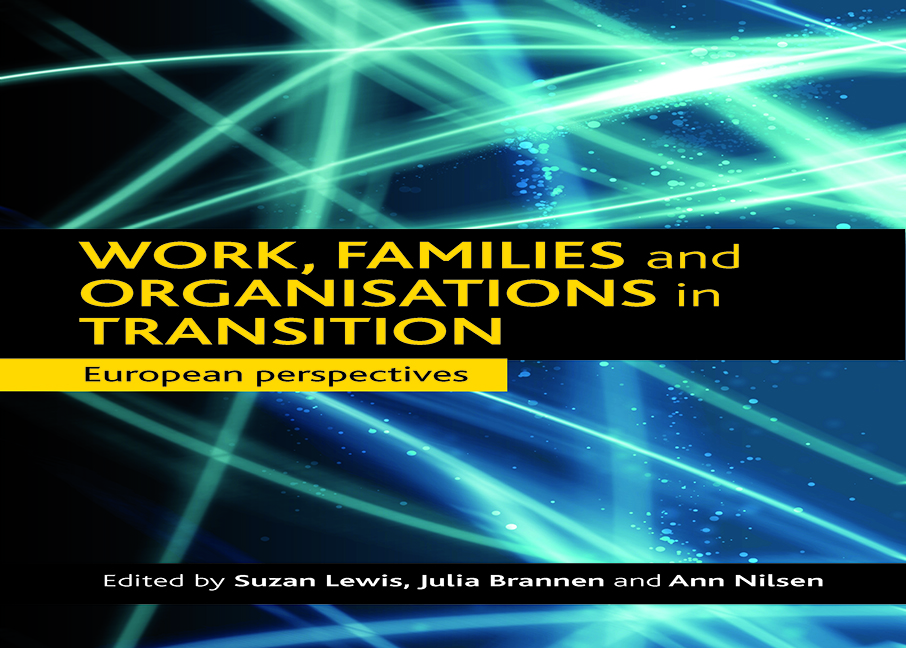Book contents
- Frontmatter
- Dedication
- Contents
- Acknowledgements
- Notes on contributors
- one Work, family and organisations in transition: setting the context
- two Research design and methods: doing comparative cross-national research
- Part One Public sector organisations
- Part Two Private sector organisations
- Part Three Comparisons
- Appendix
- References
- Index
nine - Parents and organisational change: a cross-sector comparison of two Norwegian organisations
Published online by Cambridge University Press: 16 July 2022
- Frontmatter
- Dedication
- Contents
- Acknowledgements
- Notes on contributors
- one Work, family and organisations in transition: setting the context
- two Research design and methods: doing comparative cross-national research
- Part One Public sector organisations
- Part Two Private sector organisations
- Part Three Comparisons
- Appendix
- References
- Index
Summary
Introduction
Based on a case study of a Norwegian multinational company (NMC) in the private sector and a public sector social services organisation in Norway, this chapter seeks to explore and compare how employees who are parents of young children experience and talk about organisational change. An overview of similarities and differences between the two is the backcloth against which we develop our discussion. Comparing across sectors makes for a context-sensitive analysis that can highlight aspects of effects on employees’ lives of organisational change that single case studies could not provide.
The wider context characterising the period during which the case studies were carried out (early 2003) was one of economic growth with low unemployment. The importance of oil to the economy enabled Norway to avoid the economic recession and major cuts in welfare benefits that other Scandinavian countries experienced during the 1990s. Political consensus on the subject of public responsibility for basic welfare provision continued throughout the period (Eitrheim and Kuhnle, 2000). During the 1990s, the institutional features of the welfare state were strengthened regarding labour market, gender equality and work–family reconciliation policies (see Chapter One). Norway's large public sector and the state's active labour market policies notwithstanding, now neoliberal ideas have become more influential. Privatisation and New Public Management (NPM) ideologies have become important in the ‘modernisation’ of the public sector of the economy (Christensen and Lægreid, 2002, 2007).
The gender segregation of the Norwegian labour market is persistent. More men occupy positions in the higher echelons of the occupational structure; many occupations are ‘gender typed’ in the sense that they are either male or female dominated. As in most welfare states, there is a large public sector of the economy that includes a range of teaching and caring occupations. In Norway, women comprise 70% of the employees in the public sector of the economy, where the part-time rate is very high. In the private sector, there are 63% men. Around 50% of managers in the public sector are women. In the private sector, 74% of managers are men (www.ssb.no/vis/emner/06/01/yrkeaku/main.html). Promotion opportunities are different in the two sectors as the occupational hierarchies differ, and the wage level is higher in the private sector (Tronstad, 2007).
- Type
- Chapter
- Information
- Work, Families and Organisations in TransitionEuropean Perspectives, pp. 131 - 148Publisher: Bristol University PressPrint publication year: 2009



